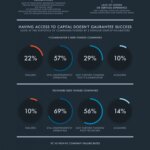I have been a long time advocate of European entrepreneurship. But spending twenty weeks in dynamic Asia in the past year taught me a few things, among them the fact that our market is probably counter productively soft…
I was a mentor at SeedCamp two weeks ago. Contrary to what I thought SeedCamp is not a conference. It is an investment fund leveraging the wisdom of the (filtered) crowds, putting young entrepreneurs through an intense one week process that ends with the best ones receiving a seed investment.
I sat down – alongside fellow mentors Brad Gillespie and Prashant Agarwal – with young entrepreneurs, discussing their project, advising them on how to make the best of their ideas and talent. The 25 teams that attended the event were selected from a pool of 250+ proposals, it was the cream of the crop.
And of course there was the one team who had visibly no chance for success. A non-exiting product, barely a feature, no brand or potential. What do you do in that case? I discussed with Brad afterward and we agreed – a bit because we couldn’t find a better solution – that encouraging them was the best way to go. Entrepreneurs are precious people, their confidence is fragile, they need to be pushed and should be able to rebound from failure.
But are we really helping an entrepreneur by encouraging him to pursue a project that has a big chance to fail? Probably not. Most of the web start ups that are launched these days have no chance to succeed. And not telling them is one of the problems we have here in the Europe.
Our market is not cruel enough.
I see several reasons for that. First, we are much softer and diplomatic in Europe. We are not used to have people telling us what they really think. The Americans are used to extreme freedom of expression. In Europe (and it might be an heritage of greater diversity) we put a lot of efforts into softening what we say. That might not be true in southern France or Italy, but in the east and north that’s very obvious.
Another factor is the fact we don’t have enough projects in our ecosystem. It makes each of them extremely valuable. Bad projects are always better than no projects, at least in the eyes of all the governmental agencies promoting innovation and entrepreneurship.
Last but not least, a slower market means a slower feedback. If you can launch your product in three months you will quickly know if you have potential or not. With fragmented markets, multiple languages and heavier administrative burden, European start-ups need more time to reach their clients, and bad projects get the news later, after they have spent many resources.
This has a number of consequences.
The first is that good projects have less resources available. Less space at the incubator, less seed investment, less access to mentors. And less media attention. It’s easier to cover the latest non-innovative-but-web2.0-certified blog platform launched by a local company, less to talk about a more complicated but revolutionary project like Fairtilizer.
Another factor is that failure is more painful. When you have invested three years of your life in a project and need to close it down, it is much more difficult than when you have been working for a couple of months. Failure has deeper consequences, on the ego, the finances, the network. It is less accepted because more visible and hurtful.
Then there are consequences on the ecosystem itself, with bad projects giving a negative image of entrepreneurship, creating the perception that working in a small company is less safe than working in a big one (something that recent events have shown is probably not true.
At this point, with our resources getting more rare, it might be important to reconsider our attitude on this, and become more courageous when assessing projects.
_______________________________________________
About The Author:
Laurent Haug is an entrepreneur, observer, investor, strategist, and creative matchmaker for industry leaders, start-ups, policy makers, designers, and developers; guiding them through the intricacies of emerging technologies and the larger social and economic changes that shape them.Laurent works with clients and projects in many different domains – entrepreneurship, finance, media, technology, retail – and facilitate the sharing of ideas, experience, and knowledge that lead to innovative action and new collaborative projects. He is the founder of Lift, Switzerland’s first ideas conference on the subject of innovation, technology, and society. He was twice honored as one of the most influential person in Switzerland (L’Hebdo in 2006, Bilan in 2011), won a Swiss ICT award, and was named one of the top 20 Swiss young entrepreneurs in 2011. You can contact Laurent by emailing [email protected]






























